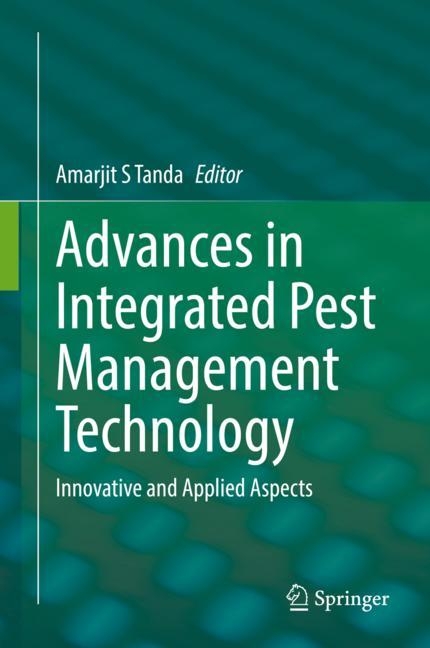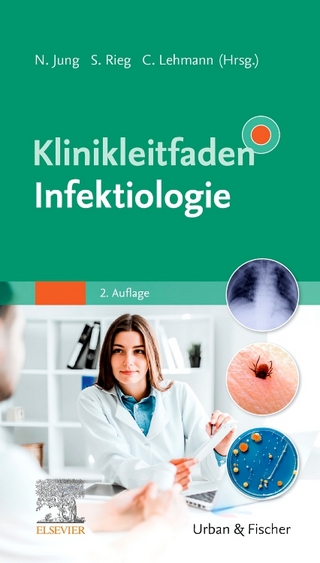
Advances in Integrated Pest Management Technology
Springer International Publishing (Verlag)
978-3-030-94948-8 (ISBN)
This book aims at bringing out a comprehensive collection of information on all aspects of advances in integrated pest management technology in agriculture systems worldwide. The main focus of this book is to address the nano-biotechnology as sustainable solutions, biogenetic insect resistant plants in integrated pest management technology (IPMT), and DNA barcoding of insects and role of protease inhibitors in recent management trends. It also highlights the advances in integrated management of insect pests of stored grains, and use of bee pollinator's as a livelihood security to the people worldwide. Step-by-step descriptions, accompanied by numerous photographs and schematic drawings, are provided on IPMT under changing climate, and habitat manipulation in crops. This book thus provides a forward-looking foundation for IPMT systems and its use in crop production.
Dr Amarjit Singh Tanda is an eminent research scientist, academician & administrator with four decades of experience. Currently, he serves as the Managing Director of TPC Sydney, Australia. Dr. Tanda has more than 95 research publications in national and international journals. Among his various awards and recognition by professional societies are Elected Fellow of The Linnean Society of London, Honorary Member of the Australian Society of Plant Scientists, and Life Fellow of Entomological Society of India.
Chapter. 1 Advances in Integrated Pest Management Technology Systems and Going beyond ConventionChapter. 2 Integrated Insect Pest Management under Changing ClimateChapter. 3 Tritrophic Effects of Nitrogen Fertilizer and Plant Inputs on the Efficiency of Bio-Control AgentsChapter. 4 Optimizing Antagonistic Plants and Botanicals in Integrated Nematode Management Technology Chapter. 5 Habitat Manipulation in Crops for Integrated Insect Pest and Disease ManagementChapter. 6 A Mathematical Model to Simulate the Development of Insecticide Resistance: Assessment of IPM Technologies for Reducing Insecticide ResistanceChapter. 7 Role of Entomopathogenic Microorganisms in IPMChapter. 8 Advances in Integrated Management Technology of Insect Pests of Stored GrainChapter. 9 Biorational Products in Integrated Pest ManagementChapter. 10 Biological Control Integration Systems in Agricultural IndustryChapter. 11 Pest Management Technology and Bee Pollinators' IntegrationChapter. 12 Role of Protease Inhibitors in Recent Trends of Insect Pest ManagementChapter. 13 Integrated Pest Management Approaches And Nontoxic Heat TreatmentsChapter. 14 Biotechnological Tools for Monitoring, Assessment and Insect Pest Management in Agricultural EcosystemsChapter. 15 Biofabricated Nanoparticles: A Greener Approach Towards Insect ControlChapter. 16 Advances in Nano biotechnology as Sustainable Solutions for Insect Pest ManagementChapter. 17 Role of DNA barcoding in integrated pest management: Challenges and threats
| Erscheinungsdatum | 19.05.2022 |
|---|---|
| Zusatzinfo | XXIX, 482 p. 50 illus., 34 illus. in color. |
| Verlagsort | Cham |
| Sprache | englisch |
| Maße | 155 x 235 mm |
| Gewicht | 925 g |
| Themenwelt | Studium ► Querschnittsbereiche ► Infektiologie / Immunologie |
| Naturwissenschaften ► Biologie ► Botanik | |
| Weitere Fachgebiete ► Land- / Forstwirtschaft / Fischerei | |
| Schlagworte | Agronomy • biotic stress • CRISPR • Entomology • Pesticides |
| ISBN-10 | 3-030-94948-6 / 3030949486 |
| ISBN-13 | 978-3-030-94948-8 / 9783030949488 |
| Zustand | Neuware |
| Informationen gemäß Produktsicherheitsverordnung (GPSR) | |
| Haben Sie eine Frage zum Produkt? |
aus dem Bereich


